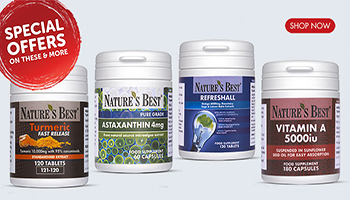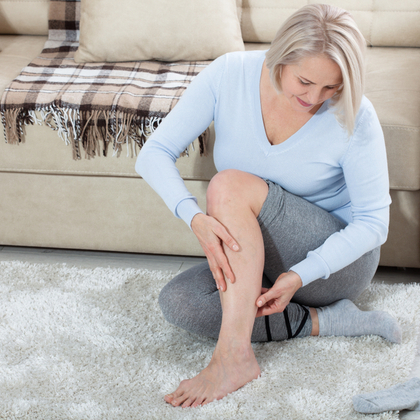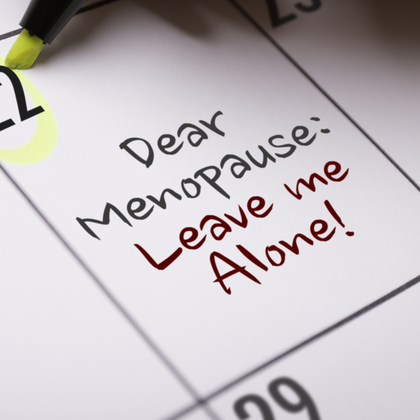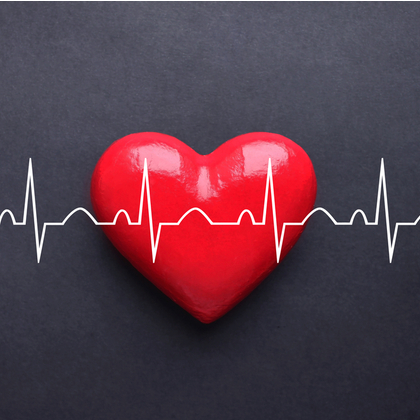
As you reach perimenopause, the female sex hormone, oestrogen, starts to decline in your body. Oestrogen plays a critically important role in bone mineral density, heart function, sleep quality, emotional wellbeing, so low levels may affect your physical and psychological health. Indeed, many women struggle with bothersome symptoms during the menopausal transition.
Research into phytoestrogens, like soy, has exploded in recent years. Phytoestrogens are potent plant compounds that have a similar chemical structure to oestrogen in the body. They are believed to have a beneficial impact on health and are of particular interest to women heading towards menopause. In many cases, these foods are an excellent alternative to hormone replacement therapy (HRT), which supplies synthetic oestrogen and is unsuitable for some women.
Increasingly, data suggests phytoestrogens may be a useful tool to support the reduction of hot flushes, which commonly affect menopausal women, and are known to interfere with daily life.
What is soy?
Soy isoflavones are chemicals found in soybean and soybean products. Isoflavones are a member of the phytoestrogen family. These agents bind to the same receptors as oestrogen and operate uniquely in the body.
 Phytoestrogens, like soy, are believed to have a balancing effect on your hormones in menopause. For instance, as we outline below, soy may help reduce hot flushes during the menopause, a symptom caused by low oestrogen.
Phytoestrogens, like soy, are believed to have a balancing effect on your hormones in menopause. For instance, as we outline below, soy may help reduce hot flushes during the menopause, a symptom caused by low oestrogen.
Can soy help with hot flushes?
In clinical trials, phytoestrogens, namely soy, have demonstrated promise in reducing hot flushes and night sweats (1). In one study published in Obstetrics and Gynaecology, researchers found that women taking soy isoflavones saw a substantial reduction in the frequency of hot flushes in only four weeks compared to those taking the placebo (2).
In a 2012 meta-analysis of 19 studies, researchers found that women taking soy isoflavones supplements reduced the severity of their hot flushes by a modest 26 per cent (3).
How women in Asian countries experience the menopause demonstrates the power of phytoestrogens during this time. Data suggests that Asian women experience significantly fewer hot flushes than Western women (4). Women in Asian countries, like Japan, are raised on a diet of soya bean products: miso (soybean pasta), tamari (wheat-free soya sauce), edamame, tempeh, tofu, and soya milk.
As a result, the average Japanese woman consumes between 20 and 50mg of isoflavones daily, compared to a British woman who generally eats between 1 and 3mg a day (5). One study reported that healthy postmenopausal Caucasian women in the USA consume less than 1mg of isoflavones daily, significantly lower than their Asian counterparts (6). This widespread consumption of soy isoflavones may explain why hot flushes' incidences are dramatically lower in Asian countries.
Although soy isoflavones do not appear to work as quickly as HRT, they can be a helpful and natural alternative to synthetic oestrogen, especially for women who cannot take HRT due to personal preference or medical history.
How much soy should I take?
To reap the health benefits of soy isoflavones for menopause, try to eat food sources in their traditional fermented preparations, such as miso or tempeh. Where possible, avoid processed soy-based products, like soy burgers, as these have poor nutritional properties. You could aim for two servings of soya isoflavones each week. Aside from soy, legumes, garlic, celery, seeds, some fruits and vegetables, and sprouts (alfalfa and mung bean sprouts) are also rich in phytoestrogens.
Of course, you can also take soy isoflavones supplements for a reliable and convenient intake. Indeed, most research uses supplementation, not food sources, to assess its effect on menopausal symptoms. Our Soya Isoflavones 50mg, High Strength Extract provides a concentrated dose of naturally sourced isoflavones from GMO-free soya in a one-a-day formula.
Although every woman is unique, most research indicates that soy isoflavones can have a moderate impact on bothersome menopausal symptoms, like hot flushes. What is more, since soy isoflavones mimic oestrogen in the body, the benefits are not solely limited to improving hot flushes. There is also a strong case suggesting they may fortify bones and prevent osteoporosis, a bone condition that is becoming increasingly common in postmenopausal women.
For more information on managing your health in menopause, please visit the rest of our dedicated Menopause hub.
References:
-
Vasomotor symptom relief by soy isoflavone extract tablets in postmenopausal women: a multicenter, double-blind, randomized, placebo-controlled study. Menopause. 2000;7(6):422.
-
Albertazzi P. The Effect of Dietary Soy Supplementation on Hot Flushes. Obstetrics & Gynecology. 1998;91(1):6-11.
-
Taku K. et al., Extracted or synthesized soybean isoflavones reduce menopausal hot flash frequency and severity. Menopause: The Journal of The North American Menopause Society. 2012;19(7):776-790.
-
Urmc.rochester.edu. 2020. Is Soy A Remedy For Menopausal Symptoms? Available online: https://www.urmc.rochester.edu/ob-gyn/ur-medicine-menopause-and-womens-health/menopause-blog/march-2015/is-soy-a-remedy-for-menopausal-symptoms.aspx .
-
Messina M. Impact of Soy Foods on the Development of Breast Cancer and the Prognosis of Breast Cancer Patients. Complementary Medicine Research. 2016;23(2):75-80.
-
deKleijn M. et al., Intake of Dietary Phytoestrogens Is Low in Postmenopausal Women in the United States: The Framingham Study. The Journal of Nutrition. 2001;131(6):1826-1832.
You Might Also Like
Disclaimer: The information presented by Nature's Best is for informational purposes only. It is based on scientific studies (human, animal, or in vitro), clinical experience, or traditional usage as cited in each article. The results reported may not necessarily occur in all individuals. Self-treatment is not recommended for life-threatening conditions that require medical treatment under a doctor's care. For many of the conditions discussed, treatment with prescription or over the counter medication is also available. Consult your doctor, practitioner, and/or pharmacist for any health problem and before using any supplements or before making any changes in prescribed medications.

Olivia
Olivia Salter has always been an avid health nut. After graduating from the University of Bristol, she began working for a nutritional consultancy where she discovered her passion for all things wellness-related. There, she executed much of the company’s content marketing strategy and found her niche in health writing, publishing articles in Women’s Health, Mind Body Green, Thrive and Psychologies.
View More



